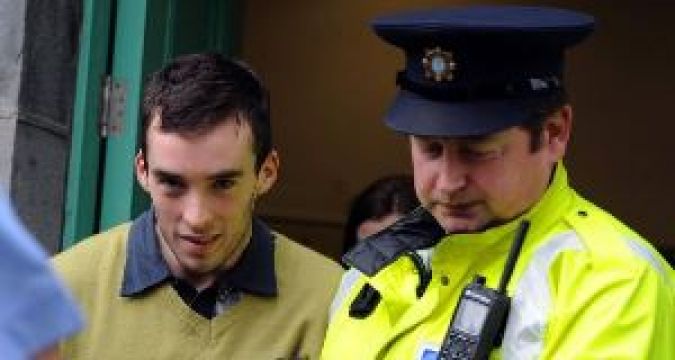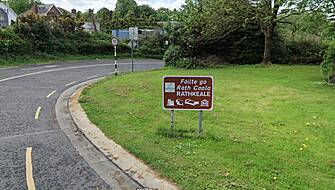The jury in the trial of a man who denies the murder of his mother with a hatchet after an argument about the purchase of an iPhone have begun their deliberations at the Central Criminal Court.
At around 3.30pm on Thursday, the jury broke deliberations and passed a note to the judge asking if they could inspect the hatchet, which they took to the jury room and returned minutes later.
Expert psychiatrists have told the court that Patrick Dunne, who admits killing his mother Susan Dunne in 2013 but denies her murder, was incapable of understanding or controlling his actions on the night and was suffering with a mental disorder at the time.
The trial heard Mr Dunne told gardaí in interviews that he "lost it" over a disagreement about the purchase of an iPhone which Ms Dunne believed to be too expensive. Ms Dunne died after suffering six hatchet wounds to the head as she lay in her bed.
The 29-year-old autistic man admits killing his mother "without any lawful justification", his lawyers say, but psychiatrists for both the prosecution and defence agree the accused was insane, as defined by law, at the time of his mother's death.
Mr Dunne, from Ballingeragh, Lixnaw, Co Kerry, has pleaded not guilty to murdering his mother, Susan (62), between November 26th and 27th, 2013, both dates inclusive, at the same address.
'Legally insane'
At the Central Criminal Court on Thursday, expert witness for the prosecution Dr Anthony Kearns, a consultant forensic psychiatrist, said that in his opinion Mr Dunne was legally insane at the time of his mother's 2013 killing.
Dr Kearns said he had been the main treating doctor for Mr Dunne at the Central Mental Hospital for seven years. He said that the accused had shown "considerable progress" during that time and had found him fit to stand trial earlier this year.
Dr Kearns said Mr Dunne was on the "mild-to-moderate" spectrum of autism but also suffered an intellectual disability diagnosed when the accused was five-years-old.
He said the accused's mother was "very protective" of her son and had "significant concerns" about him mixing in the community.
Dr Kearns said Mr Dunne told him in an interview that he "regretted" the killing and said: "If I had any way to bring her back to life, I'd do it in a second".
Dr Kearns said the legal definition of insanity regarding a person accused of a criminal offence was that they suffered a mental disorder at the time of the offence and that a person could not be held responsible if they did not know either the nature of the act, did not know the act was wrong or were incapable of refraining from the act.
The witness said Mr Dunne fulfilled all criteria to be considered legally insane at the time of the killing. If the jury agrees, they can return a special verdict, meaning Mr Dunne could be found not guilty of the alleged murder by reason of insanity.
Dr Kearns said Mr Dunne had "little understanding of the act or its consequences and was unable to refrain" from killing Ms Dunne.
On Wednesday, defence expert witness Dr Ronan Mullaney told the court that Mr Dunne was incapable of controlling his actions or emotions on the night.
The consultant forensic psychiatrist said Mr Dunne felt his mother was controlling him, adding that the accused perceived his mother was preventing him from having any independence regarding a life of his own, friends of his own, socialising, having a girlfriend or contact with his father.
'No other choice'
Dr Mullaney said that before Mr Dunne killed his mother, he had years of thoughts of doing so and that at the time of her death the accused felt he had "no other choice".
He said that Mr Dunne was not able to conceive of the feelings of others and that autistic people can exhibit angry, impulsive behaviour and physical aggression.
The doctor said a culmination of anger in Mr Dunne over his restricted life led him to admit that he shoplifted the axe with the intention of killing his mother.
Mr Dunne told interviewers in the Central Mental Hospital that he regretted what he did and that if "I had had the skills then that I have now my mother would still be alive".
In interviews, Mr Dunne said he could now see that his mother was trying to protect him, keep him safe and that she did not want to be alone.
In her charge to the jury on Thursday, Ms Justice Mary Ellen Ring said the case was a "difficult" one and "unusual" in that both the prosecution and defence expert psychiatrists agreed that Mr Dunne was legally insane at the time of the killing.
She said Mr Dunne enjoyed the right of presumption of innocence and that it should be treated as a "thirteenth juror".

Ms Justice Ring said the jury should leave sentiment aside in making their deliberations, but noted: "Particularly with the death of any person, it is hard not to have an emotional response."
She said that if the jury were satisfied that Mr Dunne was legally insane at the time, they were required to return a verdict of not guilty by reason of insanity.
She said the case was a "sad, difficult and tragic one" but that "the system has every faith in you".
The jury of seven women and five men will continue their deliberations on Friday.







